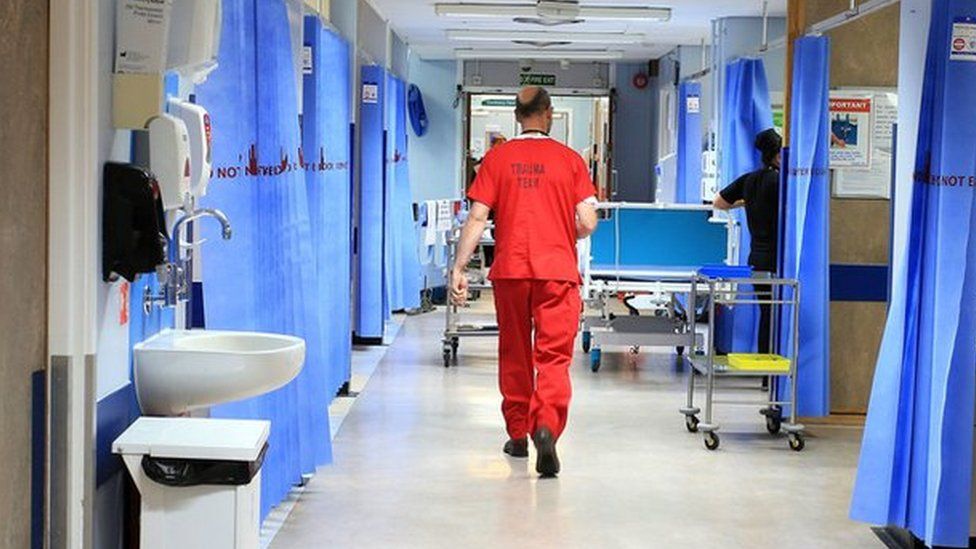ARTICLE AD BOX
 Image source, PA Media
Image source, PA Media
An extra 5,000 hospital beds will be available this winter to help the NHS in England to cope, health bosses say.
It will mean nearly 100,000 permanent beds accessible at the busiest time of the year - a 5% rise on current levels.
NHS England is also promising quicker discharge arrangements to get patients out of hospital when they are medically-fit to leave.
This will be achieved through the rollout of what have been dubbed "care traffic control centres".
These centres bring together the NHS, community, housing and charity teams to help co-ordinate support for those patients who need help once they leave hospital.
The idea is that plans for a prompt and efficient discharge can be started shortly after patients are admitted to hospital, thanks to better co-ordination among teams over follow-up care.
Last winter, one-in-eight beds were taken by patients who were ready to be released, but could not be discharged because of a lack of available support.
Many departments already use this approach, but NHS England has requested all areas have joint teams in place for winter.
Hospitals will also be provided with financial incentives to improve performance, such as keeping A&E waiting times to four hours or less.
The details have yet to be finalised, but it is thought likely it will include extra money for the 2024-2025 financial year for those hospitals that exceed expectations over the winter period.
Image source, Getty Images
Alongside these measures there will be at least 10,000 'virtual' hospital beds open by autumn. Under such an arrangement, doctors provide remote monitoring of patients in their home, who would otherwise have to be admitted to hospital.
They have been used in recent years for patients with conditions such as respiratory infections and heart problems.
There will also be the option for hospitals to open emergency escalation beds if needed, NHS England said.
Sarah-Jane Marsh, from NHS England, said the measures would help the service increase its "resilience" during the busy winter months.
Matthew Taylor, of the NHS Confederation - which represents hospitals - said the measures were based on "sound evidence", but questioned whether there will be sufficient funding and staff to make the plan work. One-in-10 nurse posts are currently vacant.

 1 year ago
92
1 year ago
92








 English (US) ·
English (US) ·